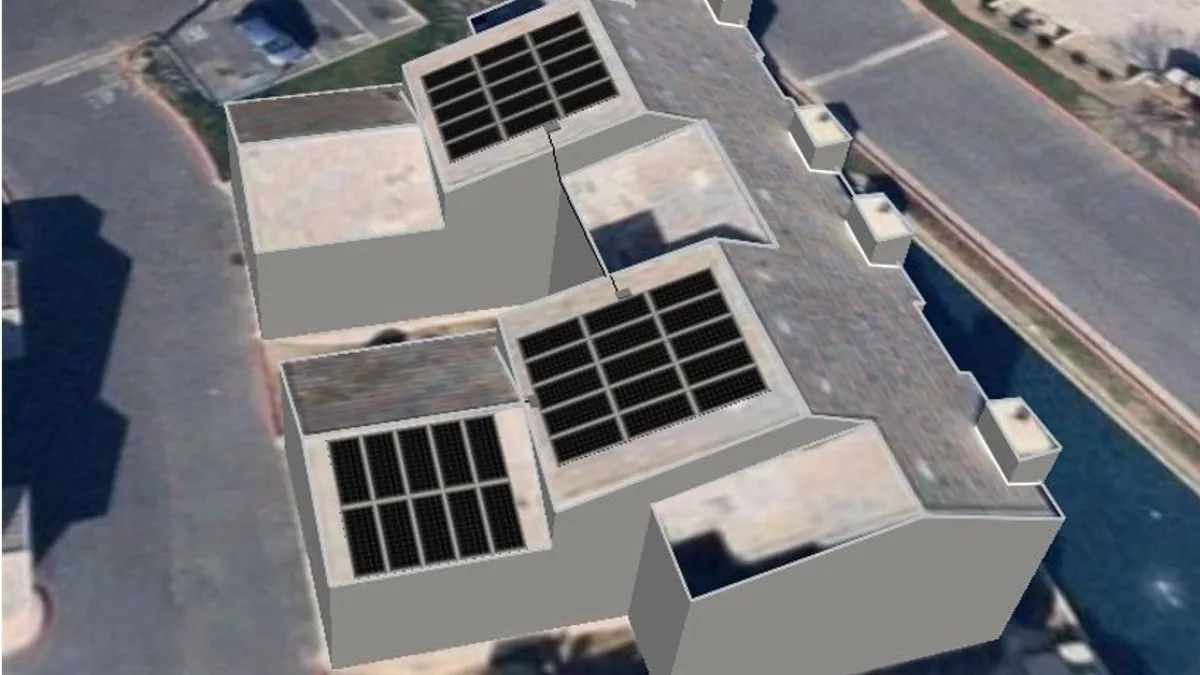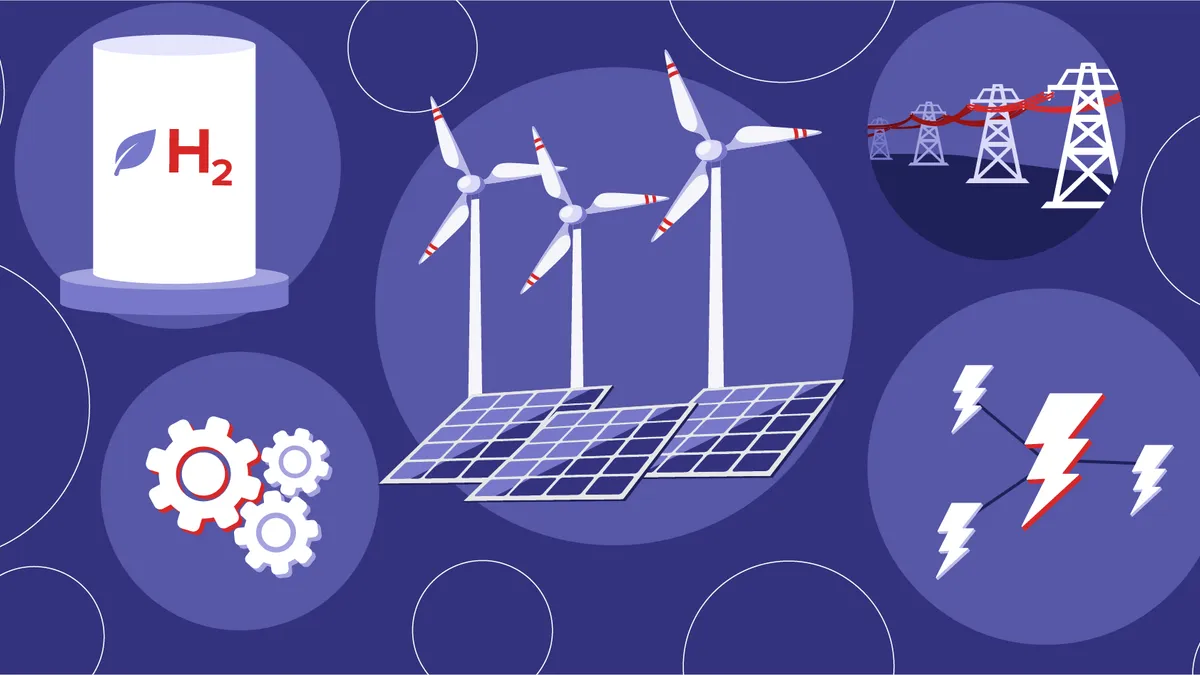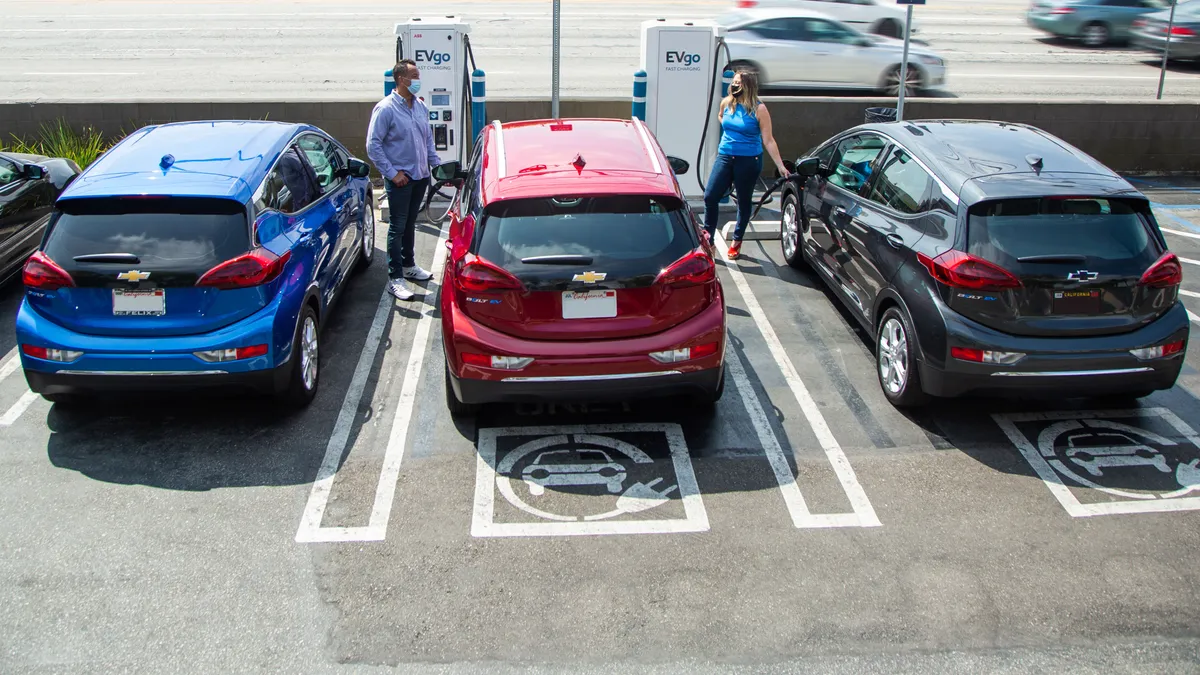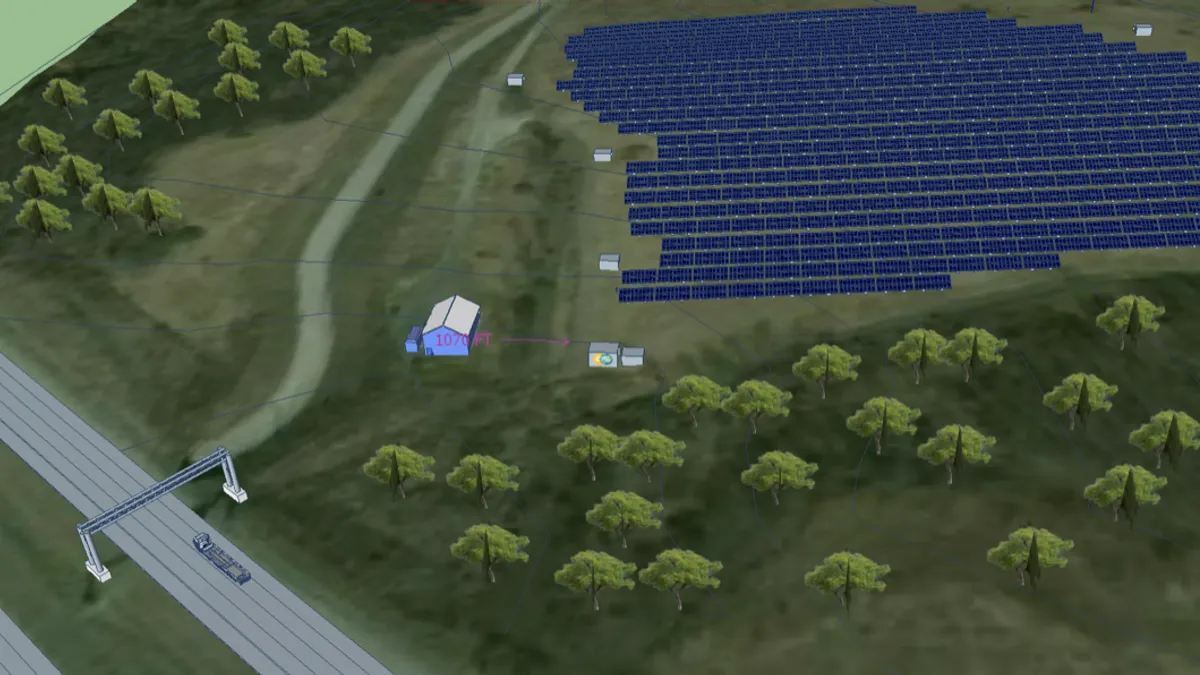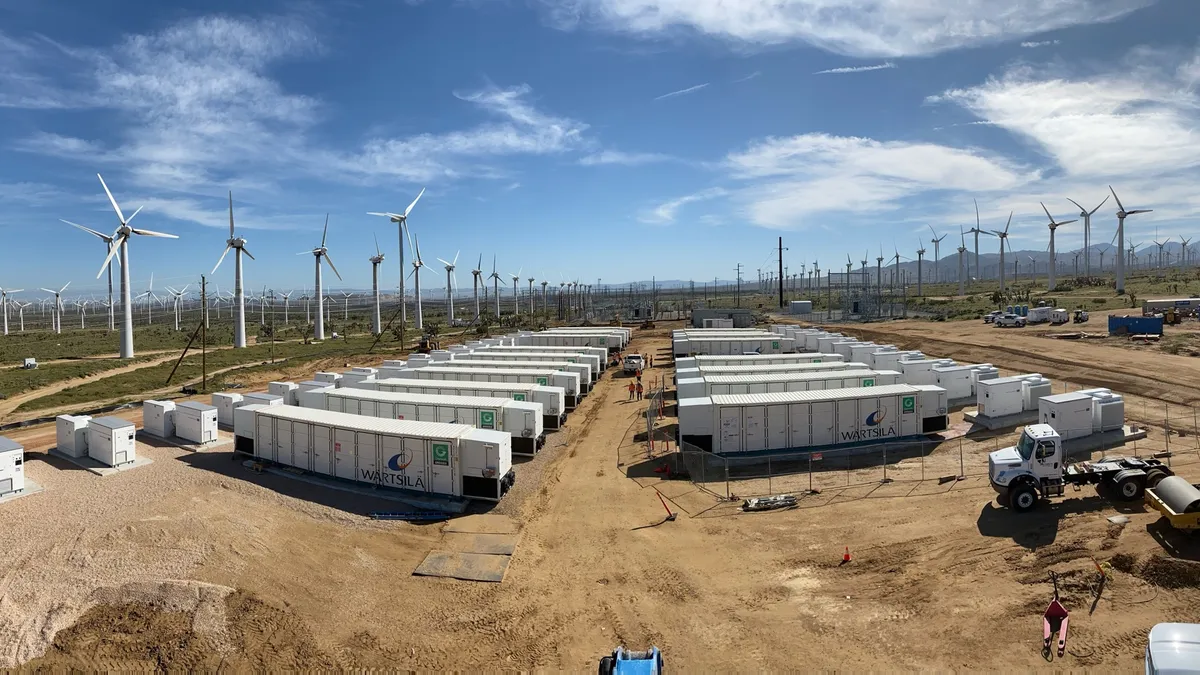Distributed Energy: Page 22
-
Deep Dive
As utility collaboration with charging companies rises, emerging differences could impede EV growth
To accelerate EV charging infrastructure deployment, former competitors are working together, but new questions threaten to lead to dissension.
By Herman K. Trabish • Aug. 31, 2020 -
Wasatch Group, sonnen plan 24 MW, 60 MWh virtual power plants in California for $130M
The companies are beginning the first of seven retrofit projects in September in a Fresno apartment community, planning to add 3,000 batteries and solar power to homes.
By Iulia Gheorghiu • Aug. 27, 2020 -
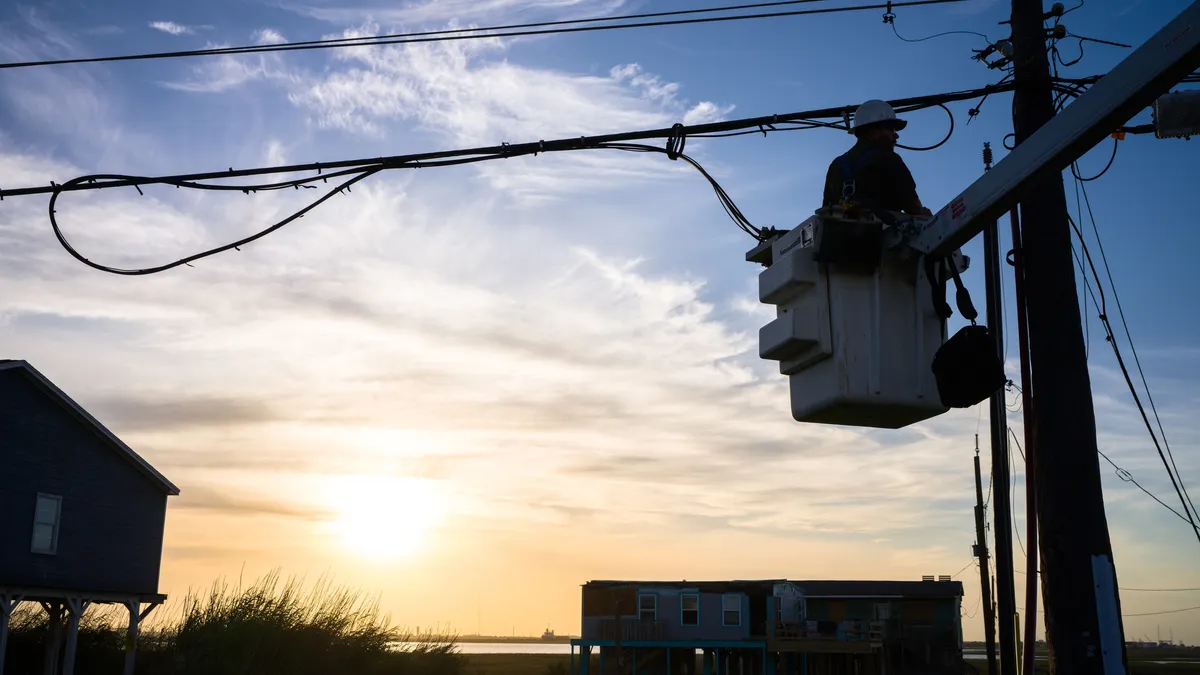 Explore the Trendline➔
Explore the Trendline➔
 Brandon Bell/Getty Images via Getty Images
Brandon Bell/Getty Images via Getty Images Trendline
TrendlineAI in the Power Sector
Artificial intelligence is uniquely positioned to impact the electricity industry from both ends: as the technology driving large load demand growth and as a tool with the potential to make the power system more efficient.
By Utility Dive staff -
Energy consulting groups value Southeast RTO potential at $384B savings by 2040
A seven-state RTO, including Florida, Tennessee and the Carolinas, would phase out coal generation and add more storage and renewables into the mix, according to analysis from Vibrant Clean Energy.
By Iulia Gheorghiu • Aug. 25, 2020 -
Deep Dive
Ensuring DER inclusion in capacity markets may require a rethink of resource adequacy
The growth of customer-owned resources is forcing system operators and aggregators to see their value as reliability tools and rethink the concept of resource adequacy.
By Herman K. Trabish • Aug. 24, 2020 -
5 technologies propelling the energy transition
Utility Dive's latest series focused on electric sector innovations that could strengthen the grid, increase reliability and expand clean energy.
By Utility Dive Editors • Aug. 24, 2020 -
Opinion
A pivotal moment for microgrid policy – What California is getting right and where it's heading from here
The California Public Utilities Commission's microgrid regulatory proceedings could be a bellwether for microgrid development across the country, the author writes.
By Jonathan Kevles • Aug. 20, 2020 -
Deep Dive
Propelling the transition: Green hydrogen could be the final piece in a zero-emissions future
Green hydrogen beats renewables plus batteries at fueling heavy transport, serving industry and long duration storage — if it can be delivered affordably.
By Herman K. Trabish • Aug. 17, 2020 -
Xcel Energy unveils plan to serve 1.5M EVs by 2030
The utility is anticipating a 30-fold increase in the number of plug-in vehicles across its service territories, in hopes of saving customers billions in fuel costs.
By Robert Walton • Aug. 13, 2020 -
Sunrun posts Q2 loss but anticipates storage boost as battery prices fall, blackouts persist
Sunrun has developed a pipeline of deals to provide grid services, such as virtual power plants, in half of the regions it operates, CEO Lynn Jurich said during the company's second quarter earnings call.
By Iulia Gheorghiu • Aug. 12, 2020 -
Sponsored by Oracle
Doubling down on energy efficiency in our fight against climate change
Energy saved today affords more climate value than energy saved later. So why make energy efficiency trade-offs?
By Marisa Uchin, Vice President, Global Regulatory Affairs, Oracle Utilities • Aug. 12, 2020 -
GM, EVgo to triple fast charging network
The companies announced plans to add more than 2,700 new fast chargers in "highly visible areas" across 40 undisclosed metropolitan areas.
By Chris Teale • Aug. 3, 2020 -
Column
Taking Charge: How California's first CCA confronts wildfire risk and energy equity amid COVID-19
MCE CEO Dawn Weisz spoke to Utility Dive about the community choice aggregator's efforts to make its service area more resilient.
By Kavya Balaraman • July 29, 2020 -
DC regulators consider 'light touch' when it comes to microgrid rules
The Public Service Commission of the District of Columbia is considering the development of a regulatory framework for microgrids, hoping to encourage deployment of more renewable energy and storage.
By Robert Walton • July 28, 2020 -
Construction begins on Pittsburgh International Airport microgrid
The microgrid will completely power PIT by next summer, marking a first-of-its-kind initiative among major U.S. airports.
By Chris Teale • July 24, 2020 -
2019 was a bumper year for microgrid deployment, but COVID-19 could slow progress: WoodMac
While distributed fossil fuels accounted for a majority of microgrid capacity installed in 2019, WoodMac analyst Isaac Maze-Rothstein expects the share of renewables and storage to increase over the next five years.
By Kavya Balaraman • July 23, 2020 -
UK-based DER company enters North American market as US sits 'on the cusp' of mass transition
As the costs of battery storage drop in North America, a technology company focused on virtual power plants crosses the Atlantic to launch two new projects.
By Emma Penrod • July 21, 2020 -
New York investor-owned utilities to fund $701M make-ready EV infrastructure program
State regulators have authorized a cost-sharing program to encourage utilities and charging station developers to install 50,000 Level 2 charging plugs and 1,500 direct current fast charger stations.
By Robert Walton • July 21, 2020 -
FERC shuts down petition to upend net metering, McNamee signals issue could return
Though all four commissioners voted against the petition, Commissioners James Danly and Bernard McNamee issued separate concurrence statements.
By Catherine Morehouse • July 17, 2020 -
New York adopts net metering alternative, delays implementation due to COVID-19
New rules and charges will go into effect in 2022, which solar stakeholders say gives the industry time to recover from the effects of the global pandemic.
By Robert Walton • July 17, 2020 -
Microgrid of the future emerges in Washington as Avista preps transactive DER project
New building control systems and a pair of solar+storage systems in Spokane's University District will test the business case for greater integration of distributed energy resources, according to the utility.
By Robert Walton • July 15, 2020 -
Deep Dive
Momentum grows for piloting Netflix-like fixed subscription rates, but not everyone's on board
For customers who want predictable bills, pairing automated smart distribution technologies with flat rates can resolve the overuse challenge of traditional fixed bills.
By Herman K. Trabish • July 7, 2020 -
NERA counters broad opposition to FERC net metering petition, reveals utility-linked member
Attorneys for the New England Ratepayers Association have revealed one of its members — the president and founder of energy consulting firm Brant Energy, whose clients include National Grid, Eversource and DTE Energy.
By Catherine Morehouse • July 2, 2020 -
FPL proposes $0.30/kWh rate for utility-owned EV stations, rider to address high demand charges
Florida Power & Light proposed a pair of electric vehicle rate mechanisms, including two riders to address the impact of demand charges on low-utilization stations.
By Robert Walton • July 1, 2020 -
Why clean car advocates expect to prevail in court battle over California emission standards
Last year the Trump administration stopped allowing California and other states to set their own vehicle emission standards. Opponents of that move say Congress decided the issue decades ago, and the courts more recently.
By Robert Walton • June 30, 2020 -
Deep Dive
COVID-19 propels microgrids in healthcare sector, but regulatory, awareness hurdles remain
"If we think this is the last time we’re going to be dealing with something like this, I think we’re being foolish," said an executive at a Southern Company distributed power subsidiary.
By Kavya Balaraman • June 29, 2020


